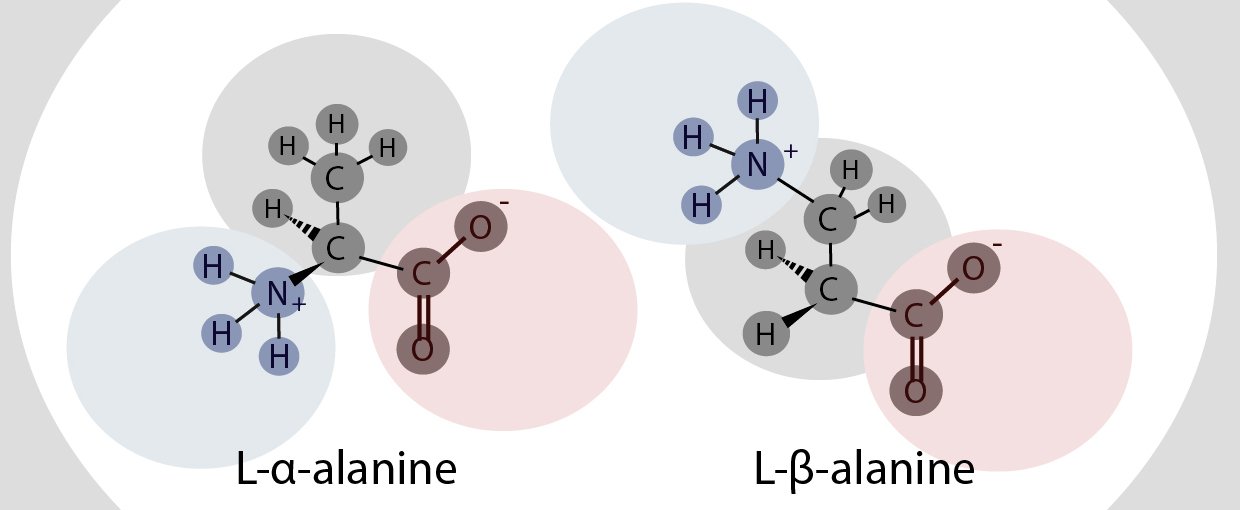
June 7, 2018
Research Highlight
Tools in Studying Prebiotic Peptides
A simple method for preparing β-alanine standards

In β-alanine, the amino group (blue) is attached to the β carbon as opposed to the α carbon. The α carbon (left image) is the central carbon where both the amino (blue) and carboxylic acid (red) groups are attached.Image credit: NASA Astrobiology.
Researchers have developed a new method for the preparation of compounds relevant to studies of the origins of life on Earth. The compounds in question are peptides, which are built from two or more amino acids linked in a chain. The formation of peptides is thought to be important in the development of the first living cells.
The team of scientists developed what is known as a ‘one-pot’ method to prepare a series of β-alanine standards that range in size from 2 to more than 12 pieces (or residues). β-alanine is a naturally occurring amino acid found in peptides like pantothenic acid (vitamin B5). The “β-” designation refers to the amino group’s position relative to the carboxylate group on the alanine molecule.
According to the researchers, the newly-developed method is a relatively simple way to prepare β-peptide standards, which can then be used in experiments to identify the differences between α- and β-peptides in the context of prebiotic chemistry.
The study, “Synthesis of β-Peptide Standards for Use in Model Prebiotic Reactions,” was published in the journal Origins of Life and Evolution of Biospheres. The work was performed at the NSF/NASA Center for Chemical Evolution (CCE) at the Georgia Institute of Technology in Atlanta, Georgia. The CCE is a collaborative program supported by the National Science Foundation (NSF) and the NASA Astrobiology Program.